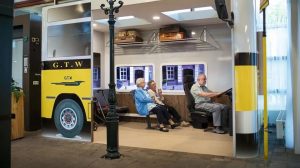
The cradle bed relieves the babbling babies, and the fake bus stop helps dementia elderly people to relieve their anxiety.The cradle bed relieves the babbling babies, and the fake bus stop helps dementia elderly people to relieve their anxiety.
In most nursing homes in Germany, there are bus stops that originally belonged to the urban transportation system.
These stop signs are all fakes made by nursing homes, and buses will never stop here.
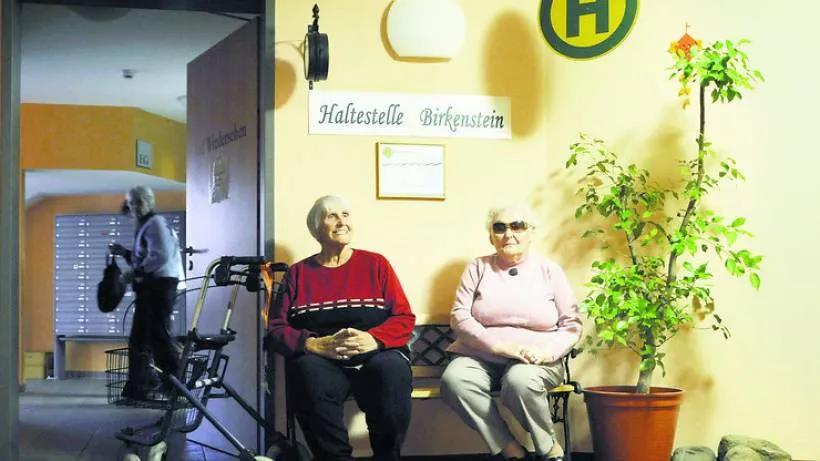
Although most ordinary people do not believe that buses stop on the third floor corridors of nursing homes or backyard lawns. But for Alzheimer’s patients with Alzheimer’s disease, the green H on the yellow background is the holy way to home and a revelation that brings peace and tranquility.
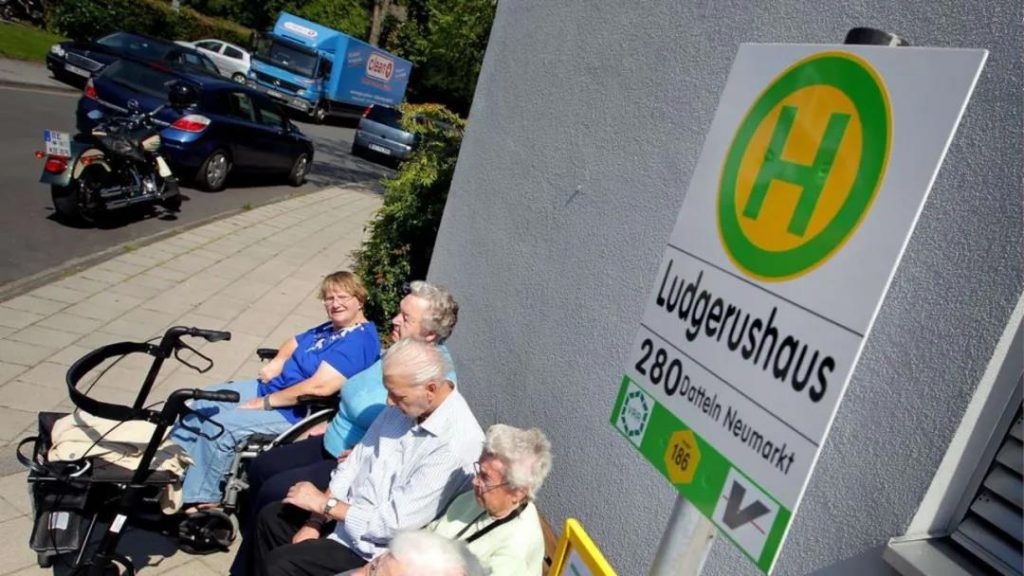
People with dementia often feel confused and know nothing about why they are here. Panic and anxiety follow up.
It is difficult for them to maintain short-term memory, and they have a deep belief in long-term memory.
Then the only thought at this moment is to leave here and go to the most secure place in the deepest memory.
Maybe it was 30 years old village home, maybe it was the apartment cubicle rented with her husband 50 years ago, but she couldn’t remember her husband seeing God earlier.
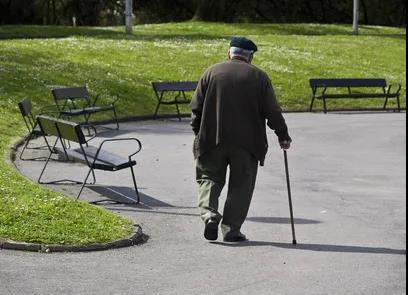
“My grandfather in the country decided to go to the city one day. But he couldn’t find a bus, so he walked along the railroad tracks all day, and walked to the place where he worked more than 50 years ago.”
“Fortunately, he is fine. I wish there was a fake bus stop in front of my house. That would save a lot of trouble.” A netizen from Texas, sonia72quebec, based on his own family experience, expounded his hope for the fake bus station in Germany.
According to statistics, 31% of dementia residents in German nursing homes have been lost at least once. In home-based Alzheimer’s patients, this figure is as high as 70%.

However, no matter where the old man with dementia is going, he needs to walk to the bus stop first.
Therefore, in order to avoid the loss of dementia patients in nursing homes, the Benrath Center for the Elderly in Düsseldorf first tried in 2006.
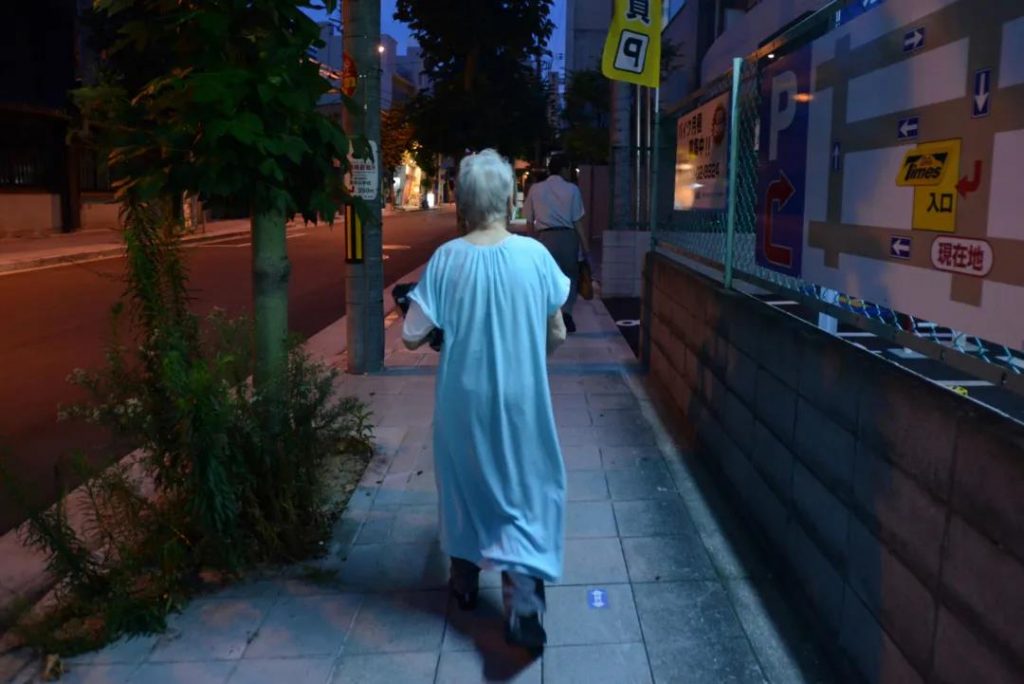
A fake bus stop was set up outside the gate and cooperated with the “Old Lion” Nursing Association.
When unusual elderly people were sitting there waiting for the bus, the social worker watched and ensured their safety.
“They remember the green and yellow bus signs, and know that waiting there means going home.” “We will walk over and tell them that the bus will come in a while, and invite them in for a cup of coffee.” Benrath’s supervisor Richard Neureither said.
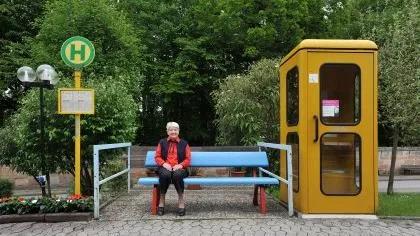
Facts have proved that the Benrath Senior Center’s attempt was very successful.
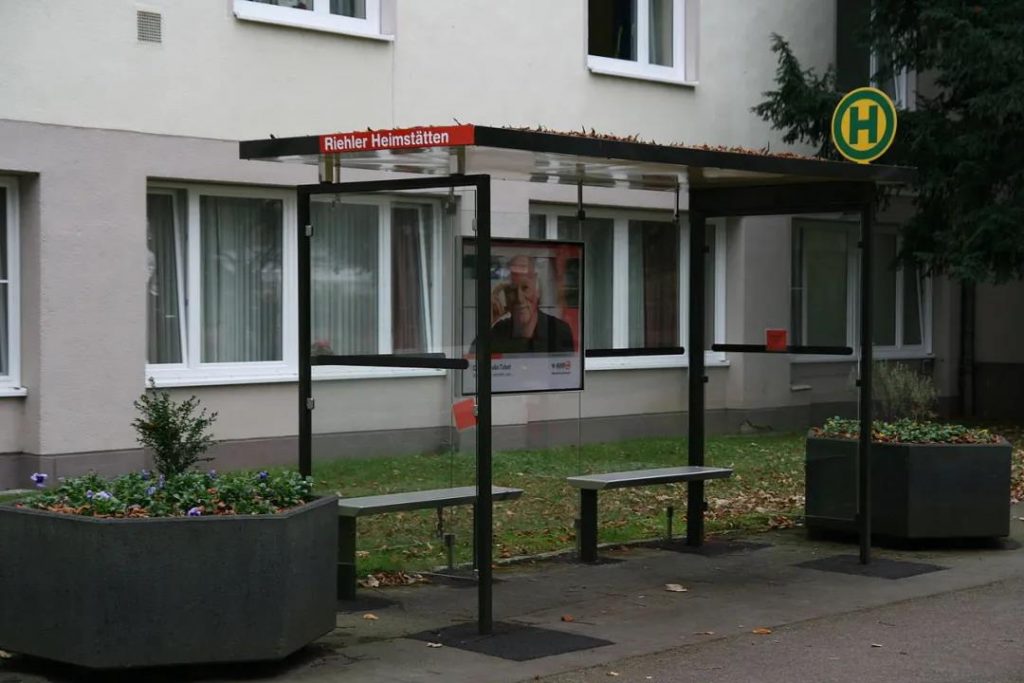
Now almost every nursing home in Germany has invested in dementia infrastructure similar to fake bus stations.
In the face of Alzheimer’s disease, which is 65 years old, the prevalence rate is as high as 6%, humans have not found any way to cure this disease. But in fact, Alzheimer’s disease does not directly endanger lives, and patients live for more than 8 years on average. If you take care of it properly, it’s not an illusion to survive for 20 years.
This is precisely the crux of Alzheimer’s disease. In essence, careful care is the most effective treatment method, which will greatly improve the patient’s survival period and sense of well-being.“You cannot rely on reason to argue with dementia patients. Since they cannot be cured, you must enter their minds.” Richard Norit, a nurse from the Düsseldorf Nursing Home, shared his nursing experience with N -TV reporter.
Many people with dementia are convinced that they forgot to turn off the oven in their apartment, even if they moved out of it 60 years ago.
They would sit somewhere for a few hours, waiting for a bus that had never been there before.
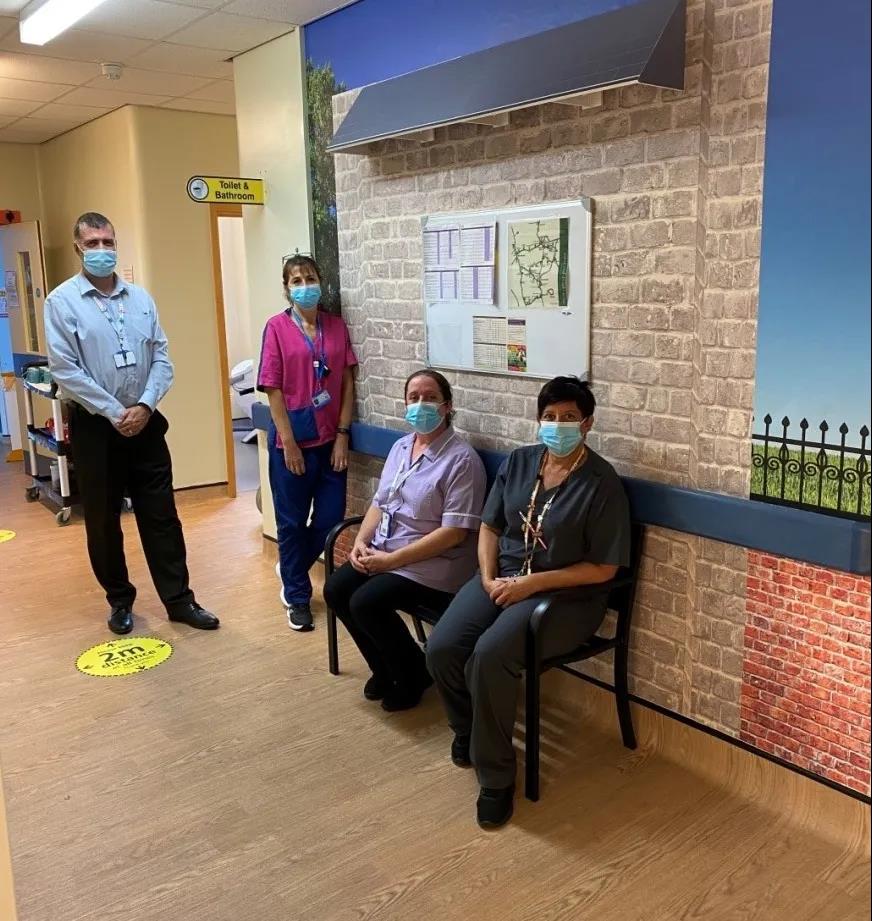
For patients who insisted on going home from the front, nurses can only use semi-compulsive methods to dissuade them.
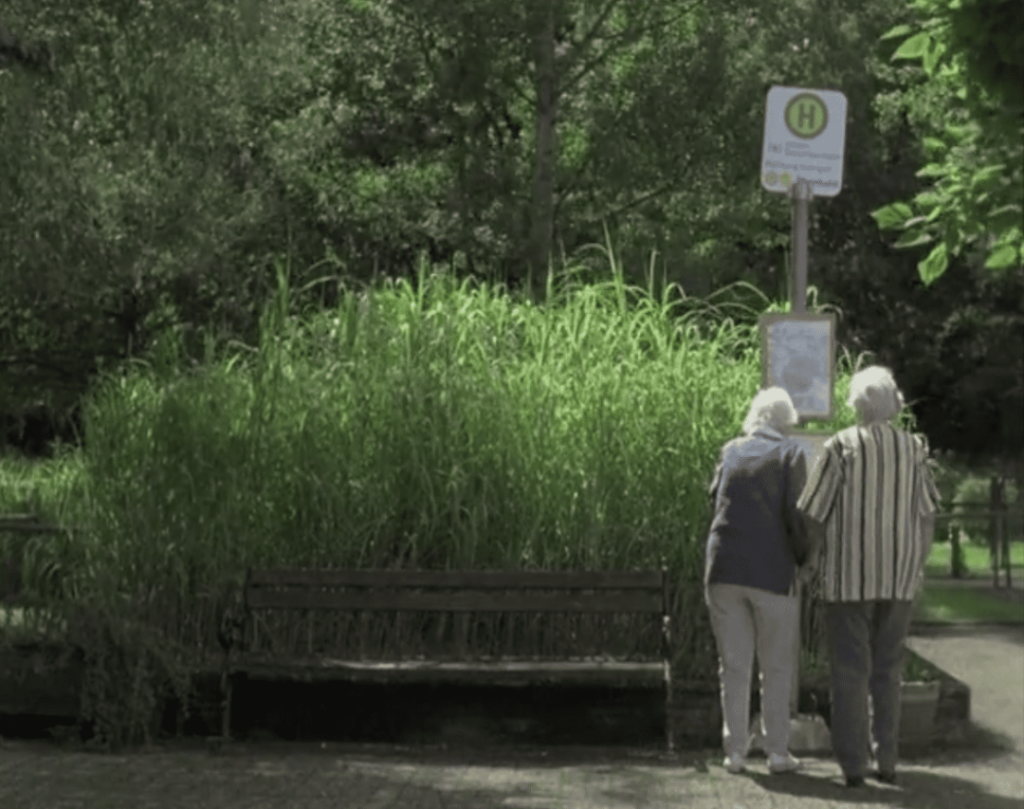
Now the nurses can take them to the fake bus stop, and the patients will feel relieved after a while.

Most nursing practitioners believe that allowing patients to follow their inner impulses is the most humane solution.
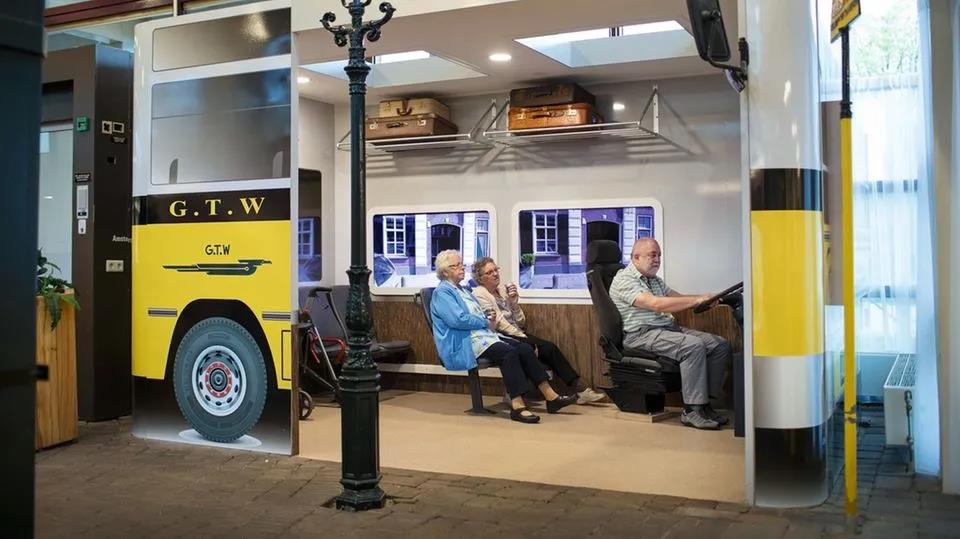
The Doetinchem Nursing Home in the neighbouring Netherlands continues the essence of the fake bus stop therapy by building a fake bus in the Nursing Home.
Patients can sit inside the fake bus, look at the windows composed of display screens, and scroll through the streets and viaducts, which greatly enhances the sense of reality.
The old people drank coffee leisurely and talked to each other in a soothing and comfortable way.
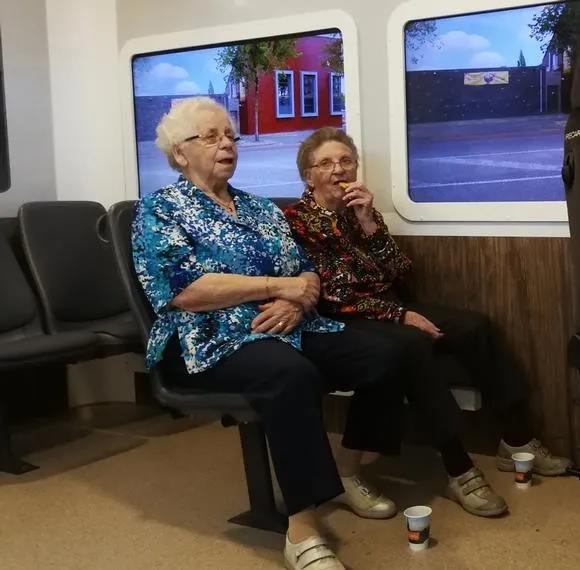
Of course, this fake bus also has a driver’s seat.
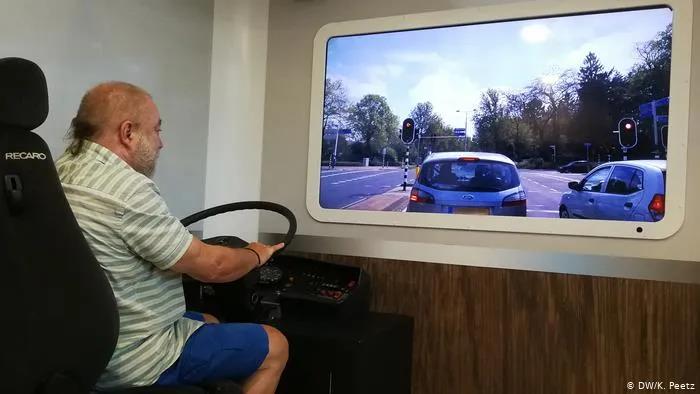
Although the 63-year-old Rudy has dementia, his driving instincts are still strong. If the screen on the display turns to the left, he will turn the steering wheel accordingly.
“I am in charge of taking care of the 75-year-old Hannah. When she has an argument with other dementia patients, they will resolve the argument in the’driving’.
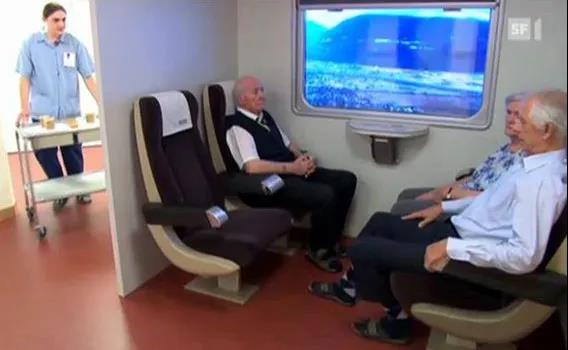
“Usually they will forget everything and get out of the car after ten minutes of’driving’, which is fun and heartbreaking,” said family volunteer Tina.
Compared with Germany’s Alzheimer’s disease bus care strategy, the Cleveland Landscape Care Center in Middlesbrough has created a surrealistic paradise for its residents.
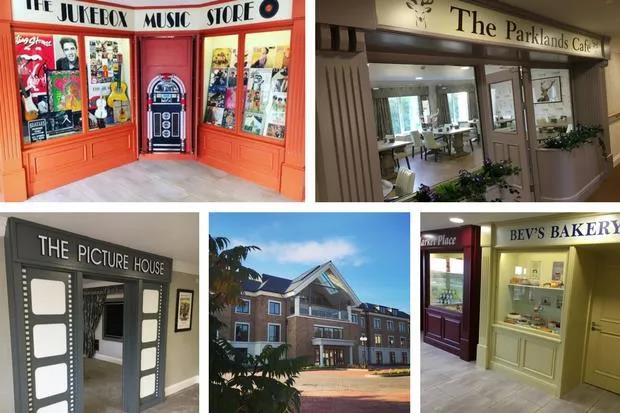
A fake supermarket and a fake post office were built in the back garden, and the corridor on the second floor of the center was transformed into a bar, cafe, barber shop, and even a nursery.

According to the needs of senile dementia residents, employees will lead them to take a wheelchair from the fake bus station and enter these fake buildings.
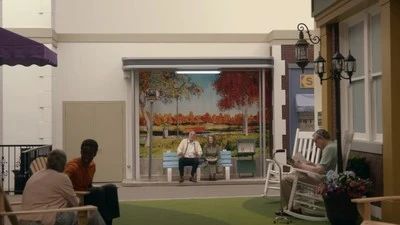
All the fake buildings here have been built into the appearance of the 1930s and 1940s to help patients recall their young lives and promote active communication with each other, which helps to delay the damage of the disease to the brain.
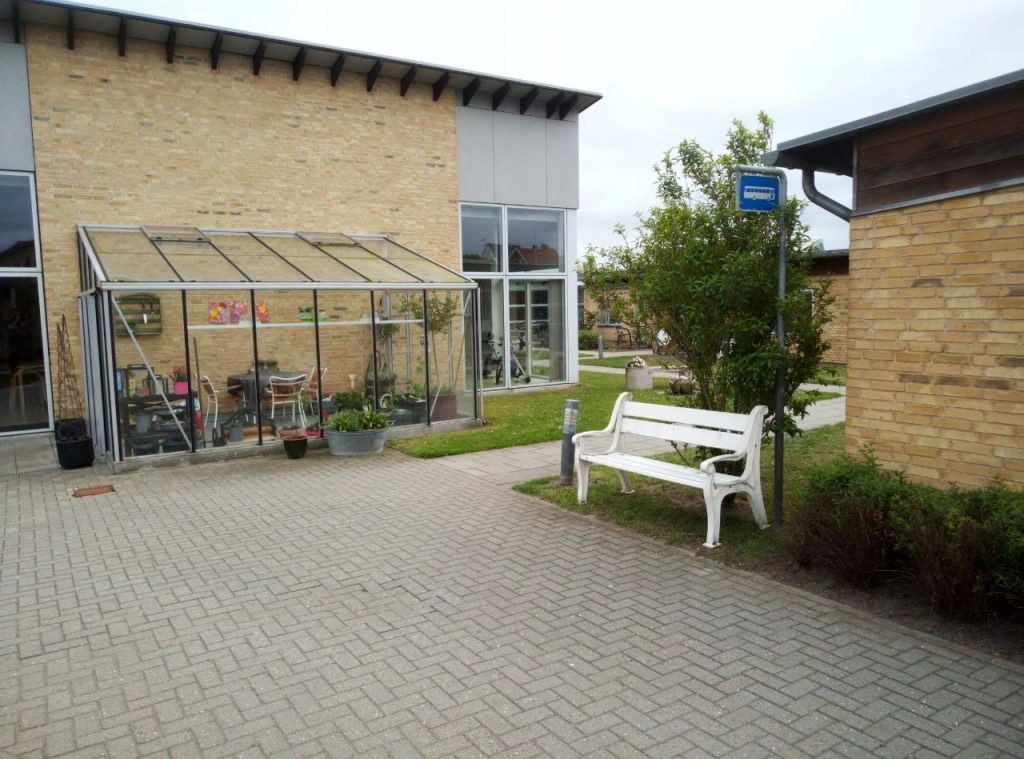
Neil Hunt, CEO of the Alzheimer’s Association, once said, “Young people will feel sad that Truman lives in a false world, but this falsehood will bring happiness to Alzheimer’s patients.”
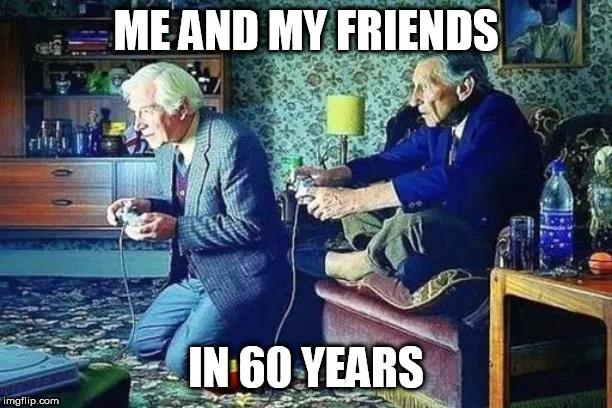
So if 30 years later, when I am old and weak, suffering from Alzheimer’s disease.
And when I start to wander around the girls’ high school next door, will the nursing home provide me with a fake internet?
Comments